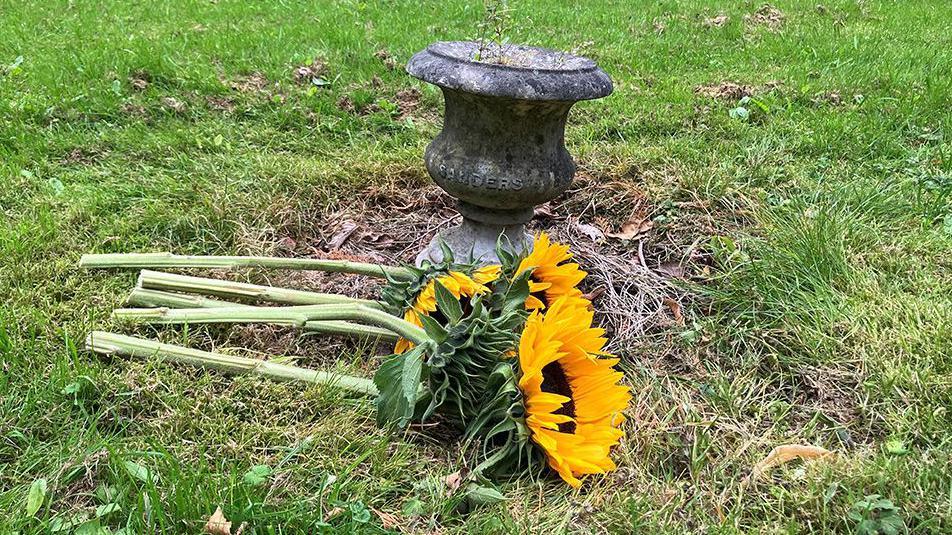Call for national memorial for mass grave babies
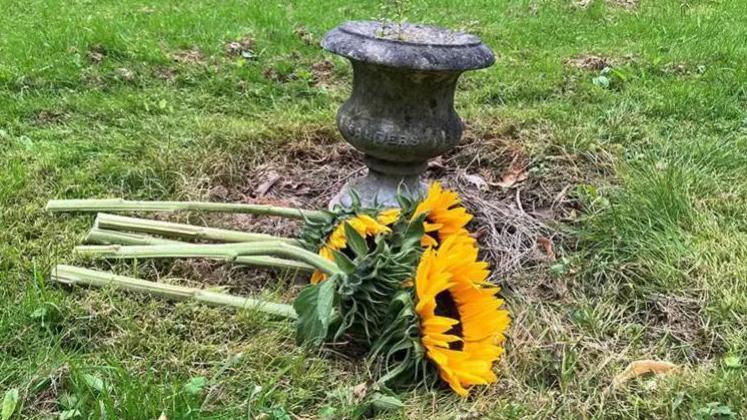
At least 89,000 miscarried or stillborn babies were buried in mass graves around the country, campaigners say
- Published
A councillor for the area where a mass grave containing the bodies of about 300 stillborn and miscarried babies was found is calling for the government to create a national memorial.
The unmarked burial site in Oldham, Greater Manchester, was discovered earlier this year by a woman who was searching for the graves of her twin brothers who died in 1962.
Before the 1980s, the bodies of stillborn and miscarried babies were often taken away by hospital workers from families who were not given any details of their resting place.
Independent councillor Maggie Hurley said it had been confirmed so far that the bodies of at least 89,000 miscarried or stillborn babies had been buried in mass graves around the country, following Freedom of Information requests.
Ahead of a local church service on Sunday to honour those buried, she described the practice as a "social injustice" and called for the creation of a national memorial.
"We can't rewrite history no matter how much we would love to, but we need the government to accept that this has happened."
A Department of Health and Social Care spokesman said the independent Law Commission was working on a project that was considering "improving burial records".
"Once published, we will consider their recommendations to create a framework for modern, consistent regulation across the system," he said.
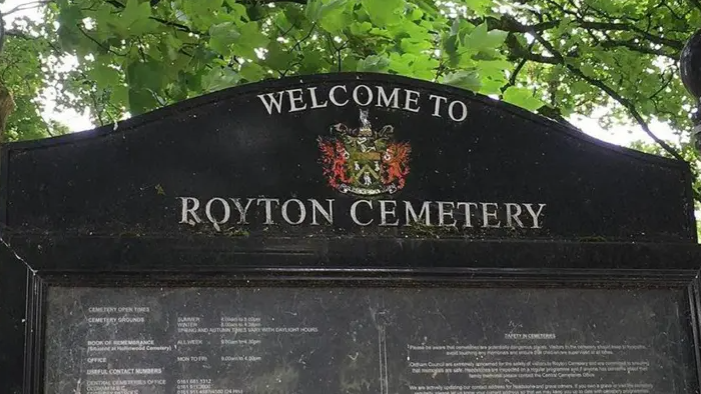
An unmarked mass grave was discovered at Royton Cemetery earlier this year
Before the 1980s, medical staff were known to give explanations such as telling bereaved parents their children would be placed alongside "a nice person" who was being buried that same day – often without giving them the opportunity to say goodbye.
"They were just taken," Ms Hurley told BBC Radio Manchester.
"The belief at that time was the best thing to do was not to look at it – don't look at it, don't hold it, you'll get on better.
"Go and have another baby, we'll deal with this, we'll bury it today with someone who's nice.
"Back then, no one questioned authority - it was a very different world."
However, the bodies of the babies were often interred in mass graves at cemeteries.
Warning: Some readers may find the details below distressing
Ms Hurley said the site found at Royton Cemetery in Oldham was "12 ft by 12ft by 12ft – it was a pit and it was just full".
Those buried in that particular mass grave included about 30 adults.
Ms Hurley said families with relatives interred at the site were "angry" but also relieved to finally know their location.
'Hidden' issue
"I've got mums who have walked past that grave to go to their [deceased] relatives, who were further on in the cemetery for 20, 30, 40 years and never known their child was there," she said.
"No one is pointing the finger and blaming anyone. We can't go back in time."
Ms Hurley joined calls for the government to "accept that this has happened and provide a statement, do a national memorial somewhere".
She said Sunday's service at St Paul's Church would be for anyone affected by the issue, adding: "This has never been done before because it's been hidden."
Listen to the best of BBC Radio Manchester on Sounds and follow BBC Manchester on Facebook, external, X, external, and Instagram, external. You can also send story ideas to northwest.newsonline@bbc.co.uk and via Whatsapp to 0808 100 2230.
Related topics
- Published10 December 2024
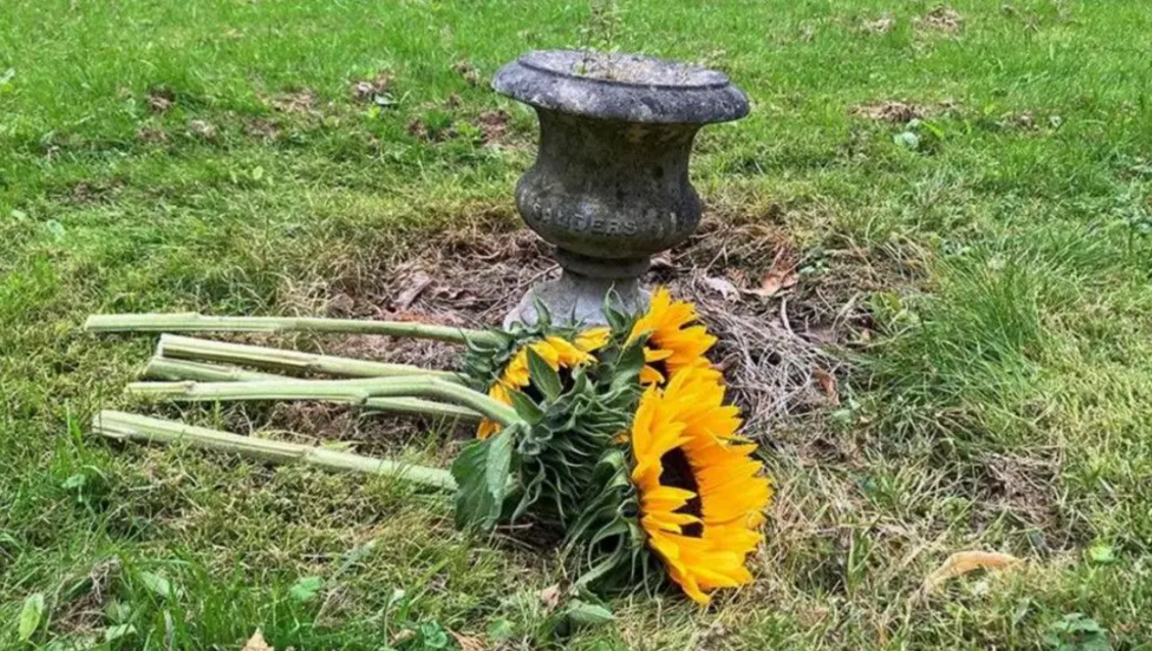
- Published6 September 2024
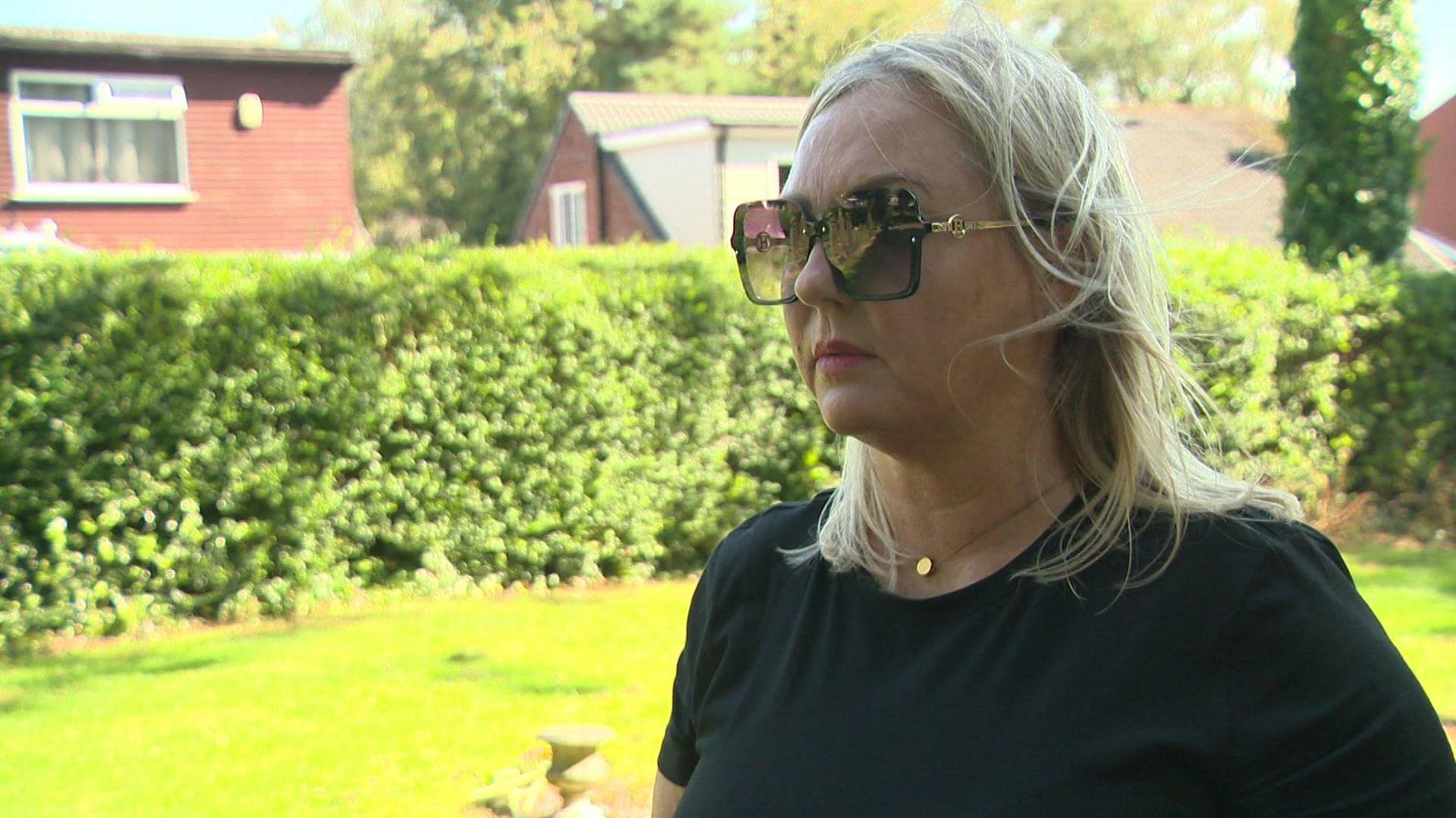
- Published5 September 2024
